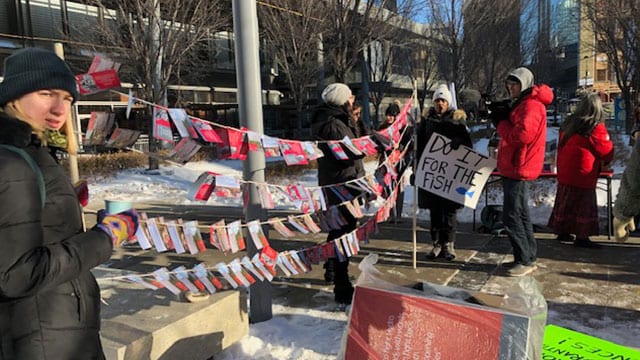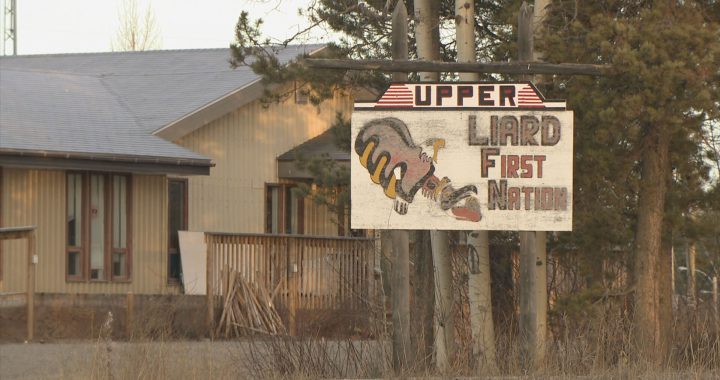Rita Monias from Pimicikamak Cree Nation holds up a bill from Manitoba Hydro for $2,000.
Pimicikamak is one of the communities in northern Manitoba that has been affected by hydro development.
“It really affects our land that we used to depend on, the water that we used to depend on for like navigation, for traditional pursues; hunting, fishing, trapping and so forth,” said Monias.
Despite having their culture and lifestyle altered for the good of southern Manitoba, Monias, her neighbours and about a dozen Nations hundreds of kilometres north of Winnipeg don’t benefit from cheaper hydro rates.
That’s why Monias, and approximately a dozen people from northern communities are marching to the Manitoba legislature.
And to remind the provincial government that Manitoba Hydro needs to be accountable for how these communities have been impacted by hydro development.
Sadie-Phoenix Lavoie, community coordinator for a research alliance called Wa Ni Ska Tan, co-hosted the event.

(Rally at the Manitoba legisture. Photo: Ashley Brandson/APTN)
“Ultimately, it’s kind of challenging the myth around you know hydro being this green energy and respectful and honouring the relationship they have with Indigenous communities,” she said.
“Once these stories are coming out into the public and into the media they start to see the realities that are really underplaying; the social impacts, the political impacts and you know that has huge impact on the community itself.”
The March started at Manitoba Hydro that has nine generating stations rerouting or blocking rivers up north.
People from different communities have sent postcards expressing their solidarity with the people up north and what changes need to happen.
Melanie O’Gorman who is with the Manitoba Energy Justice Coalition, said the province’s hydro company must be fair.
“We also want hydro rates reduced for Northern customers and we want the funding, the money that is generated by the dams to be shared more evenly across the north.”
Lavoie said more than 100 postcards were sent to provincial politicians.










